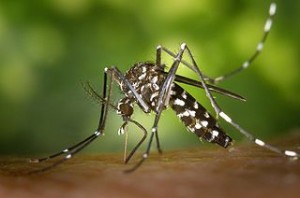Horses Owners Urged to Vaccinate NOW Against West Nile Virus
MDA press
Warm weather and the start of mosquito season are underway. The Maryland Department of Agriculture (MDA) urges horse owners to vaccinate their horses against potentially fatal mosquito-borne diseases, including West Nile Virus (WNV), which continues to impact both animal and human populations in the state. Horse owners who have vaccinated their horses against eastern equine encephalitis (EEE), western equine encephalitis (WEE), and Venezuelan equine encephalitis (VEE) still need to get their horses vaccinated for WNV, as these are different viruses and those vaccinations do not provide cross protection.
“Preventing a disease is always less expensive and traumatic than treating it, so we urge horse owners to be proactive now that the weather is warming up and vaccinate their horses,” said Maryland State Veterinarian Guy Hohenhaus. “Your veterinarian is the best source of information and advice for your horse and its health. We also remind veterinarians across the state that they must report any cases of equine arboviruses to MDA.”
WNV is a serious and, at times, deadly disease that affects humans and horses. Because animals and humans both contract WNV from the bite of an infected mosquito, MDA works closely with the Maryland Department of Health and Mental Hygiene every year to monitor WNV activity in equines. West Nile is not transmitted from horse to person; or from horse to horse. Dogs and cats are generally not affected by WNV. Veterinarians should use standard infection control precautions when caring for any animal suspected to have WNV or any other viral disease.
In 2003, there were 234 cases of equine WNV reported in Maryland; however, that number has decreased sharply with only 12 equine cases reported between 2004 and 2013. State officials urge horse owners to remain vigilant and to vaccinate their horses to keep that number low. State veterinarians also encourage horse owners to vaccinate their horses against rabies and EEE.
Information about arboviral and other infectious diseases in equines can be obtained from the Animal Health section of the MDA website. General information on WNV and other arboviruses is available on the Maryland West Nile Virus web page.
For more on reducing mosquito breeding grounds, visit here
For more information about MDA’s larviciding spray program, visit here.











